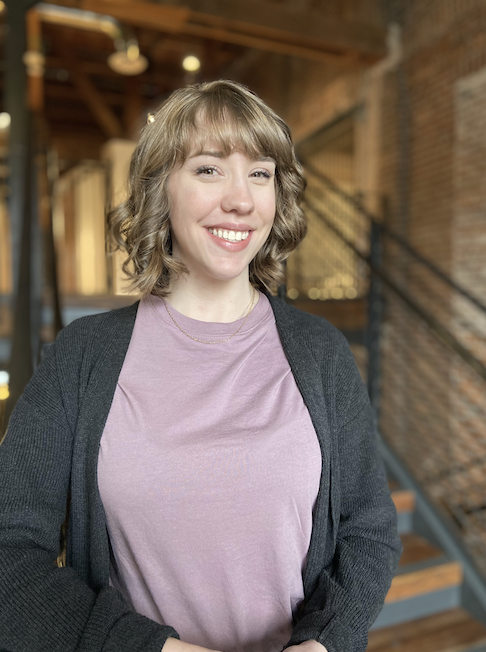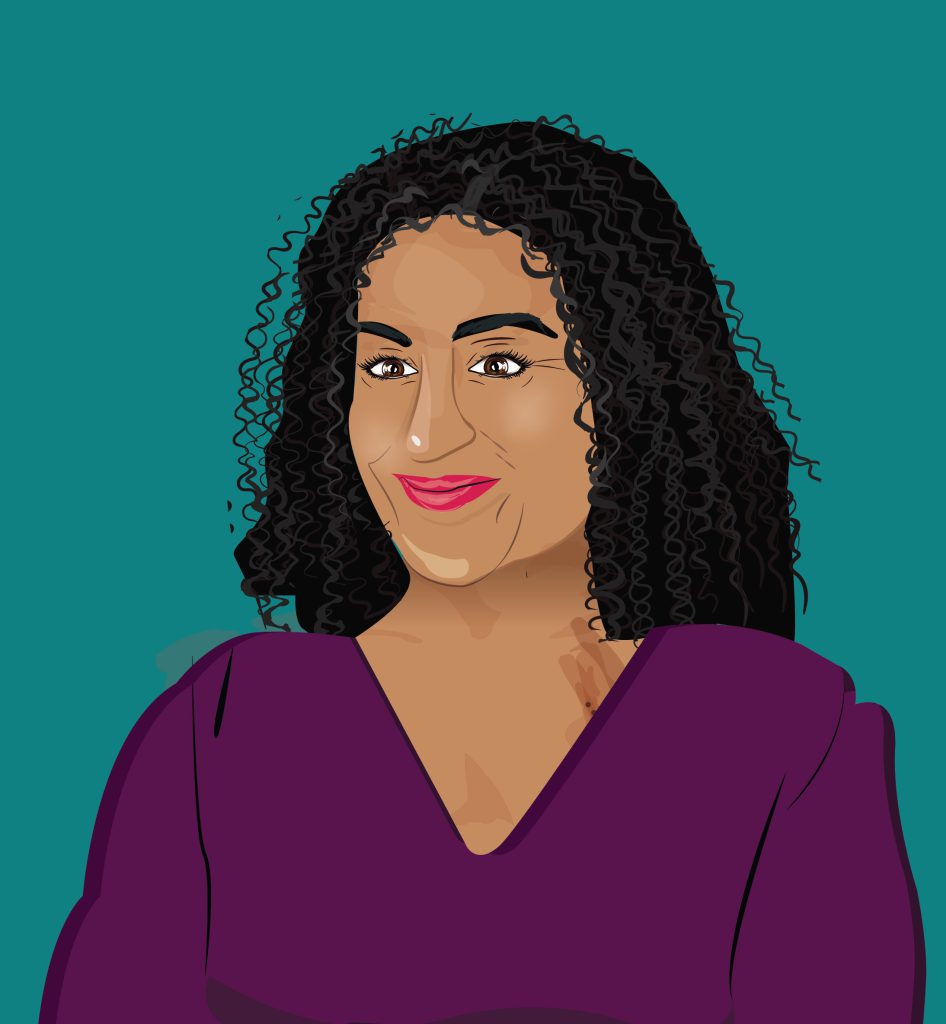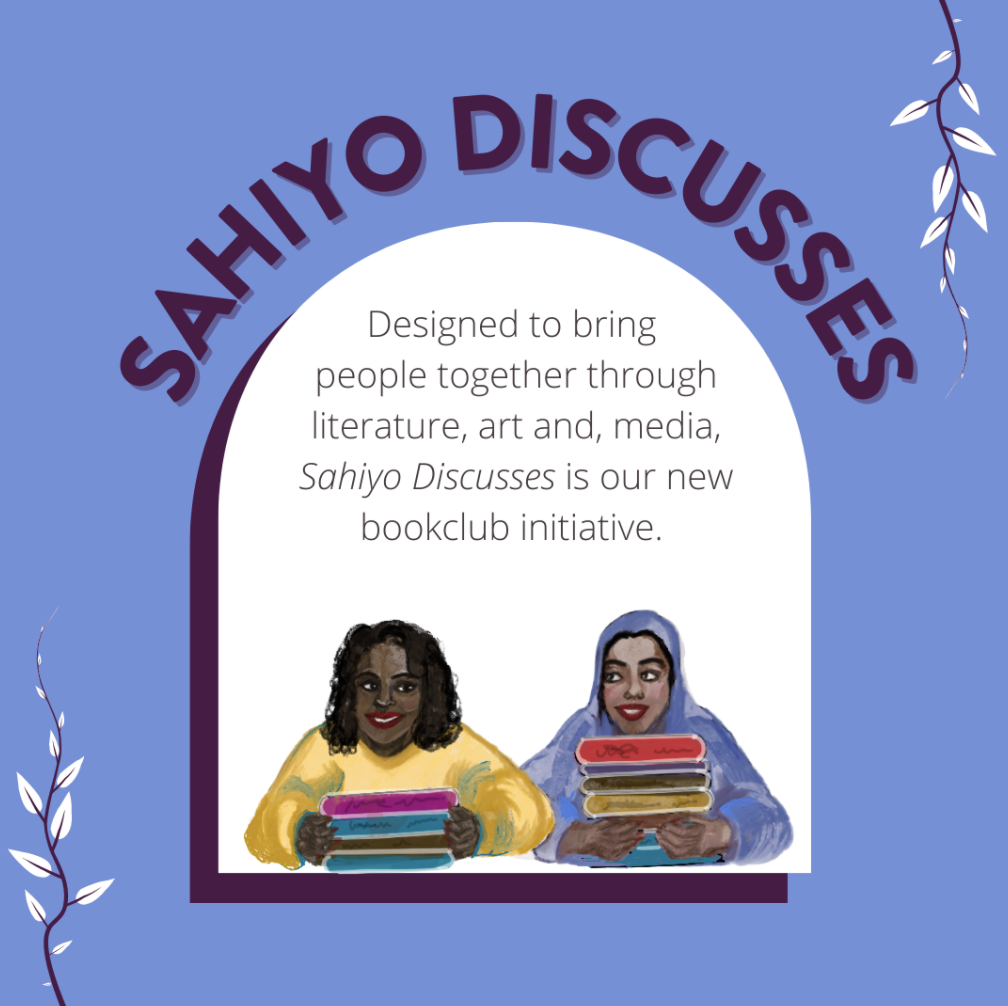Sahiyo volunteer spotlight: Editorial intern Kristin Grady

Kristin received her Certification of Editing through the University of Washington. As an enthusiastic grammarian and dedicated feminist, she is passionate about elevating women’s voices through storytelling and communal dialogue. Kristin has spent many years as a genre-fiction specialist and intends to use her editorial skillset to assist Sahiyo’s mission of ending the practice of FGC. When and how did you first get involved with Sahiyo? I became involved with Sahiyo when I applied for the internship program after finishing my editing certification. And good thing I did, this program has undoubtedly changed the course of my life. What does your work with Sahiyo involve? As an editorial intern with this organization, I guide volunteers through the blog publishing process. When a topic of interest arises, we reach out to interested volunteers and help them develop the narrative direction. It feels personal, intimate almost, given the nature of the work we do here at Sahiyo. I have also worked on proofreading the new website and expanded on Sahiyo’s existing Style Guide, a cool editing tool that we use to make our usage and spelling consistent–in the same way a baker might rely on a recipe. Overall, it’s a wonderful balance of personal connection and professional development. How has your involvement with Sahiyo impacted your life? This is emotionally demanding work. Learning more about female genital cutting, article after article, interview after interview, project after project, is an act of extreme empathy. And while I will never know firsthand the trauma of what survivors have experienced, I can do the important work of providing community, of shaping dialogue, around this issue. It’s hard. It’s hard wading through the intense, irreversible suffering of others. I’ve been angry. I’ve cried. I’ve felt the foundations of my worldview shift. But the most important lesson I have learned from this experience is that discomfort is so profoundly necessary. I have always been the kind of person that doesn’t watch the news, doesn’t keep up on climate change or any other distressing issue because it hurts. It makes me feel powerless. And this has been no different. I’ve wanted to turn away from this task. I’ve been able to turn away when I need to. And what a privilege that is. What a privilege to be able to set down these stories, to close the browser and shift my focus to lighter things. Reprieve is a gift. But survivors deserve more from me than that. They deserve to be heard. They deserve a world where violence and control over women’s bodies are things of the past. This job has forced me to be uncomfortable. To look. To listen. To hear. In ways that I did not know were possible before. I have gained a deeper resilience and respect for womanhood. What words of wisdom would you like to share with others who may be interested in supporting Sahiyo and the movement against FGC? Be uncomfortable. Listen to the story of your own emotional responses. When it hurts to hear, check your privilege and reflect. Survivors of this practice are not different from you. They may look different. They may live an ocean away (though many do not), but they deserve the same extension of humanity and kindness that you would wish to receive. So do the important work of listening, of funding, of opening yourself up to this tough task. Sahiyo is an enriching community of brave, courageous women and men working to remove a stain upon our global history, one that has lasted millennia. Being a part of that is so cool. You will find, I’m sure, no greater honor.
Dear Maasi: Is there something wrong with me because I like this kind of sex?

Dear Maasi is a column about everything you wanted to know about sex and relationships but were afraid to ask! It’s a partnership between Sahiyo and WeSpeakOut, and is for all of us who have questions about khatna (FGM/C) and how it impacts our bodies, minds, sexualities and relationships. We welcome you to submit your anonymous questions. Dear Maasi, When I was younger and underwent khatna, I felt very powerless. Now, as an adult, I prefer sexual dynamics where someone else is dominant and I’m submissive. I worry that this is because of the trauma I experienced with khatna, and not because it’s what I like. Is there something wrong with me because I like this kind of sex? –Jameela Dear Jameela, This is a brave question, and one I’ve been asked many times. The sexual dynamics that you describe can be considered kink practices, which are often maligned and misunderstood despite being common and normal. Let’s start with some information about kink: -it’s an umbrella term for a range of erotic practices, some of which might play with power. Humans are playful and imaginative when it comes to sexual expression (hurray for that!). Here’s a list from the mainstream women’s magazine, Glamour. -BDSM (bondage-discipline, dominance-submission, and sadism-masochism) is one of the most common kinks. Jameela, your preferences lie in this category. -kink is consensual adult sexual behavior, and many participants negotiate communication norms before, during, and after for ongoing consent, and to ensure that partners are still having a good time. For readers curious to learn more, check out this BDSM primer. -it’s worth repeating that BDSM is very common! In a 2014 study of 1516 adults (published in the Journal of Sexual Medicine), 65% of women and 53% of men fantasized about being sexually dominated, and 47% of women and 60% of men fantasized about dominating someone else. Now to your questions, Jameela. Is a desire to be sexually submissive a result of trauma? Let’s look at where this idea comes from: Back in 1905, Freud labeled BDSM as an inappropriate repetition compulsion and this idea has hung on, aided and abetted by sex-negative social norms that stigmatize sexual pleasure. However, ideas about sexuality have evolved since 1905 (thank goodness!): The American Psychiatric Association destigmatized kink in the Diagnostic and Statistical Manual of Mental Disorders (DSM-5) in 2013 by making distinctions between consensual and non-consensual sexual behaviours. A 2021 study compared 771 BDSM practitioners and 518 non-practitioners (published in Sexuality Research and Social Policy) and found that that both groups had almost the same levels of childhood trauma. The authors firmly argue against the hypothesis of BDSM being a maladaptive coping mechanism in response to early life dynamics. Some trauma survivors do link BDSM to their healing, but this is not inappropriate. Rather, it can be liberatory. Here’s why: Khatna does happen in a context of our powerlessness. Trauma tramples our boundaries and teaches us that our bodies are a source of shame, overwhelm, lack of control and/or pain. When negotiation and communication are in place, a survivor can use kink and power play to learn and express boundaries, and to experience new pleasures. It can help a survivor to feel ownership over her own body and sexuality. In my novel Seven, I used two BDSM scenes to explore this idea. Sharifa, a khatna survivor, tends to dissociate or zone our when sexual. Her husband Murtuza introduces a blindfold and handcuffs, and she goes with it, not expecting that she will have profound realizations about why she hasn’t been able to “let go” and experience pleasure. Kink and power play can also just be fun! Regardless of whether someone has experienced trauma or not, this can be a wonderful way to play (and don’t all adults need more playfulness in their lives?), to escape the mundane, to broaden one’s sexual menu, to build intimacy and to explore aspects of the self. If you’d like to explore this question further with a professional, make sure to find one with training in sexual health. Here’s a resource about how to find a sex-positive therapist or counsellor. I hope this answers your question, Jameela. Sexual pleasure is our birthright! —Maasi About Maasi, aka Farzana Doctor: Farzana is a novelist and psychotherapist in private practice. She’s a founding member of WeSpeakOut and the End FGM/C Canada Network. She loves talking about relationships and sexuality! Find out more about her here. Disclaimer: While Farzana is full of good advice, this column won’t address everyone’s individual concerns and should not be used as a substitute for professional medical or psychological care.
डियर मासी: एक ट्रॉमा थेरेपिस्ट से बात करना क्यों ज़रूरी है

डियर मासी एक ऐसा कॉलम है, जिसमें सेक्स और रिश्तों के बारे में वह सब कुछ बताया गया है जो आप जानना तो चाहते हैं, लेकिन पूछने से डरते हैं! यह सहियो और वी स्पीक आउट इन दो संगठनों ने मिलकर बनाया है। यह कॉलम उन लोगों के लिए है जिन्हें महिला जननांग काटने या खतना के बारे में सवाल है। यह कॉलम ख़तना कैसे हमारे शरीर, दिल, दिमाग, लैंगिकता और रिश्तों पर असर करता है इसके बारे में भी बात करता हैं। बोहरा समाज के सन्दर्भ में, माँ की बहन मासी हैं। आपके सवालों का हम स्वागत करते हैं। अपने सवाल बेझिझक यहाँ पर भेजिए। अपनी पेहचान गुप्त भी रख सक्ते हैं| प्यारी मासी, मैं 26 साल की हूँ और मेरी जिंदगी में तीन गहरे रिश्ते रहे हैं (दो लड़के और हाल ही में एक औरत के साथ)। मुझे आत्मीयता पसंद है, लेकिन पेनीट्रेशन (किसी भी चीज के साथ) से अक्सर दर्द होता है। मैंने कभी-कभी सेक्स से पूरी तरह परहेज किया है और इससे मेरे रिश्तों में तनाव पैदा हुआ है। जब मैंने एक डॉक्टर को दिखाया तो उन्होंने कहा था कि सब कुछ सामान्य है। लेकिन सच कहूँ तो मैं वाकई असामान्य महसूस करती हूँ। मेरा खतना हुआ था और मैं सोच रही हूँ कि क्या इसका मुझ पर कोई असर पड़ा है। लेकिन मुझे कुछ समझ में नहीं आ रहा है क्योंकि उन्होंने मेरे भगशेफ छत्र (क्लिटोरल हुड) को काट दिया- उन्होंने मेरी योनि को नुकसान नहीं पहुँचाया, है ना? —डरी हुई फ़ातेमा प्यारी फ़ातेमा, सबसे पहले – मैं चाहती हूँ आप यह जान लें कि आप जिस बारे में बात कर रहीं हैं वह कोई गैर-मामूली चीज नहीं है बल्कि एक मामूली-सी बात है। पेनीट्रेटिव सेक्स से दर्द होने के बहुत से कारण है। हार्मोन के कारण सूखापन, योनि में संक्रमण, चोट, और श्रोणी सूजन की बीमारी, फाइब्रॉइड्स या एंडोमेट्रियोसिस जैसे हालात की वजहों से यह हो सकता है। दर्द के अन्य सामान्य कारण हैं – योनि का जकडन (पेनीट्रेशन पर योनि या श्रोणि तल की मांसपेशियों में ऐंठन या जकड़न होना) या वेस्टिबुलर वल्वाइटिस (योनि छेद के आसपास की नसों के आसपास सूजन)। इन्हें सदमे से जोड़ा जा सकता है। इस पर थोड़ा आगे और बात करेंगे। मेरा सुझाव है कि आप दूसरे डॉक्टर से भी राय लें। बहुत सारे डॉक्टर लैंगिकता के बारे में बात करने से झिझकते हैं, और ठीक से जांच नहीं करते है। किसी ऐसे डॉक्टर की तलाश करें जिन्हें यौन मुश्किलात पे काम करने का तजुर्बा हो। इस मुद्दे को गहराई से समझने के लिए आप बॉडी पॉडकास्ट के एपिसोड वन को सुनने की मैं सिफ़ारिश करती हूँ। जहाँ तक खतना और आपके दर्द के बारे में आपका सवाल है, तो खतना में योनि नहीं काटी जाती बल्कि भगशेफ छत्र (क्लिटरिअल हुड) और कभी-कभी भगशेफ (क्लिटरिस) को भी काटा जाता है। फिर भी, शोध से पता चला है कि यह काटने से लैंगिकता पर असर हो सकता है: 2017 में किए गए सहियो सर्वे में, 35% जवाबदाताओं ने बताया कि खतना से उनके यौन जीवन पर असर हुआ था और उनमें से 87% ने महसूस किया कि यह असर बुरा था। 2018 के वी स्पीक आउट स्टडी में, तक़रीबन 33% जवाबदाताओं ने ऐसा ही कहा। मैं उनके कुछ हवालों को पढ़ने की सिफ़ारिश करती हूँ जो दर्द, ट्रिगर और सदमे को बयां करते हैं (पन्ने- 47 से 60 तक)। पढ़ने पर यह आपके अनुभव जैसे लग सकते है। सदमा तकलीफ़देह घटना का नतीजा होता है। यह किसी बात का डटकर मुकाबला करने और तजुर्बे को समझने की हमारी क़ाबलियत पर असर डालता है। ज्यादातर सरवाईवर्स खतना को एक परेशान करने वाला, पेचीदा और दर्दनाक तजुर्बा बताते हैं। इसमें कभी-कभी इनकार, गैसलाइटिंग जैसी मनोवैज्ञानिक जोड़तोड़ या बड़े-बूढ़े, भरोसेमंद रिश्तेदारों का झूठ भी शामिल होता है। मैं कहूँगी कि खतना एक सदमा ही होता है और वह उसकी व्याख्या में बैठता है। हमारा दिमाग और जिस्म सदमे को इस तरह से पकड़कर रख सकते हैं जो कभी-कभी परोक्ष या पेचीदा लगता है। मेरा मतलब समझने के लिए इस कॉमिक पर एक नज़र डालें। अब मेरी समझ में आता है कि खतना से हमारे बाहरी गुप्तांग (वल्वा) और योनि में तनाव हो सकता है। खतना ने आप पर इस तरह से असर किया है या नहीं यह समझने के लिए किसी ऐसे थेरेपिस्ट से बात करें जो सदमे पे स्पेशलिस्ट हो । फ़ातेमा, आप यह जानें कि इससे वापिस सेहतमंद और ठीक होना मुमकिन है। आपको ख़ुशी से भरपूर यौन जिंदगी का हक़ है! —मासी मासी उर्फ फ़रज़ाना डॉक्टर के बारे में फ़रज़ाना एक उपन्यास लेखिका हैं और मनोचिकित्सक की प्राइवेट प्रैक्टिस करती हैं। वह WeSpeakOut और End FGM/C कनाडा नेटवर्क की संस्थापक सदस्य हैं। वह रिश्तों और लैंगिकता के बारे में बात करना पसंद करती है! www.farzanadoctor.com पर उनके बारे में और मालूमात करें। दाऊदी बोहरा समुदाय के बारे में औरतों के रिश्तों, लैंगिकता, बेवफाई और खतना पर चर्चा करने वाला उनका नया नावेल, सेवन ऑर्डर करें। अस्वीकरण: फ़रज़ाना अच्छी सलाह जरुर देती है, लेकिन यह कॉलम हर किसी के निजी सवालों पर बात नहीं करता है और इसे पेशेवर चिकित्सा या मनोवैज्ञानिक देखभाल के विकल्प के रूप में इस्तेमाल नहीं किया जाना चाहिए। Read the Gujarati translation here, and the English translation here.
Sahiyo’s Book Club Holds Second Event In February

Event: Sahiyo Discusses: A Fractured Life by Shabnam Samuel Date: February 6th, 2022 Tme: 10 am EST Registration Link: https://bit.ly/SahiyoDiscusses Sahiyo invites you to join the second iteration of Sahiyo Discusses! Designed to bring people together through literature, art, and media, Sahiyo Discusses hosts quarterly meetings with activists and allies in Sahiyo’s network to discuss a chosen piece of media. With themes including feminism, equality, bodily autonomy, women-centered movements, and sexual empowerment, this club will focus on uplifting the stories and experiences of women everywhere. On February 6th, 2022 the group will meet virtually for Sahiyo Discusses: A Fractured Life by Shabnam Samuel. Shabnam Samuel is a writer, coach, social media trainer, and the founder of the Panchgani Writers’ Retreat, an international writing retreat based out of Panchgani, India. Her memoir, A Fractured Life, explores her life growing up in 1960s India after being abandoned by her parents. In her own words, Shabnam says; “We come from a Culture of Silence. A culture that along the way has shrouded us with this cloud of clear demarcations that all things good are only told to the outside world and all things bad are kept inside your own world. For women, this is doubly true. We are supposed to be the strength, the keeper of secrets, and the face of acceptance. It does not matter that some of us crumble inside. This needs to change. I know my story is not unique. I know there are so many of us out there. In writing my memoir, I want the world to know that silence should not be a part of our culture; I want young girls of today and women of yesterday to know that we all have a reason to exist. We all have the right to exist and no one should ever take that away from you in the name of culture, family name, kids, spouses or any other reason. So I write to prove that I exist.” Sahiyo Discusses members will have the opportunity to discuss this book with Shabnam and ask pertinent questions. Admission to Sahiyo Discusses is based on a suggested minimum donation of $25.00 USD per event. Donors who contribute $200 or more will have access to Sahiyo Discusses events for a full calendar year. If you or anyone in your network is interested in joining us please register and donate here: https://bit.ly/SahiyoDiscusses Thank you all for your continued dedication to Sahiyo’s mission, and we look forward to seeing you all there! In Her Own Words: Shabnam Samuel’s Full Bio Shabnam Samuel is an author and a motivational speaker and heads an Enterprise called Social Lite House, LLC, based out of Washington DC. Through SLH LLC, we reach out to the underprivileged, just not in economic spheres but also to those women, who voices have been silenced. Shabnam is an award winning author of her memoir called A Fractured Life, which was published in the USA in 2018. At the age of 57, after decades of silence, Shabnam found her voice and her strength through the writing of her book. Today, Shabnam reaches out through her talks, seminars and workshops to those who need to come out of their own shadows and find themselves. Creative Corporate Workshops is where Shabnam spends her time teaching writing and structure to various organizations. Shabnam is also the founder of the Panchgani Writers’ Retreat, an international writing retreat based out of Panchgani, India. The retreat incorporates mindful living along with creativity and wellness following Ayurveda principles, with yoga, meditation and writing workshops. Shabnam is studying to be an Ayurveda practitioner at the Kerala Ayurveda Academy in Kerala, India Shabnam hosts a local TV show called Dew Drops and Words that broadcasts to 6.1 million viewers on the WJAL LATV network in the Washington DC area. You can find her on YouTube under the name “Dew Drops and Words.” When she is not doing any of the above you can find her cycling somewhere in the suburbs of Washington DC which she has called home for the last 34 years.
